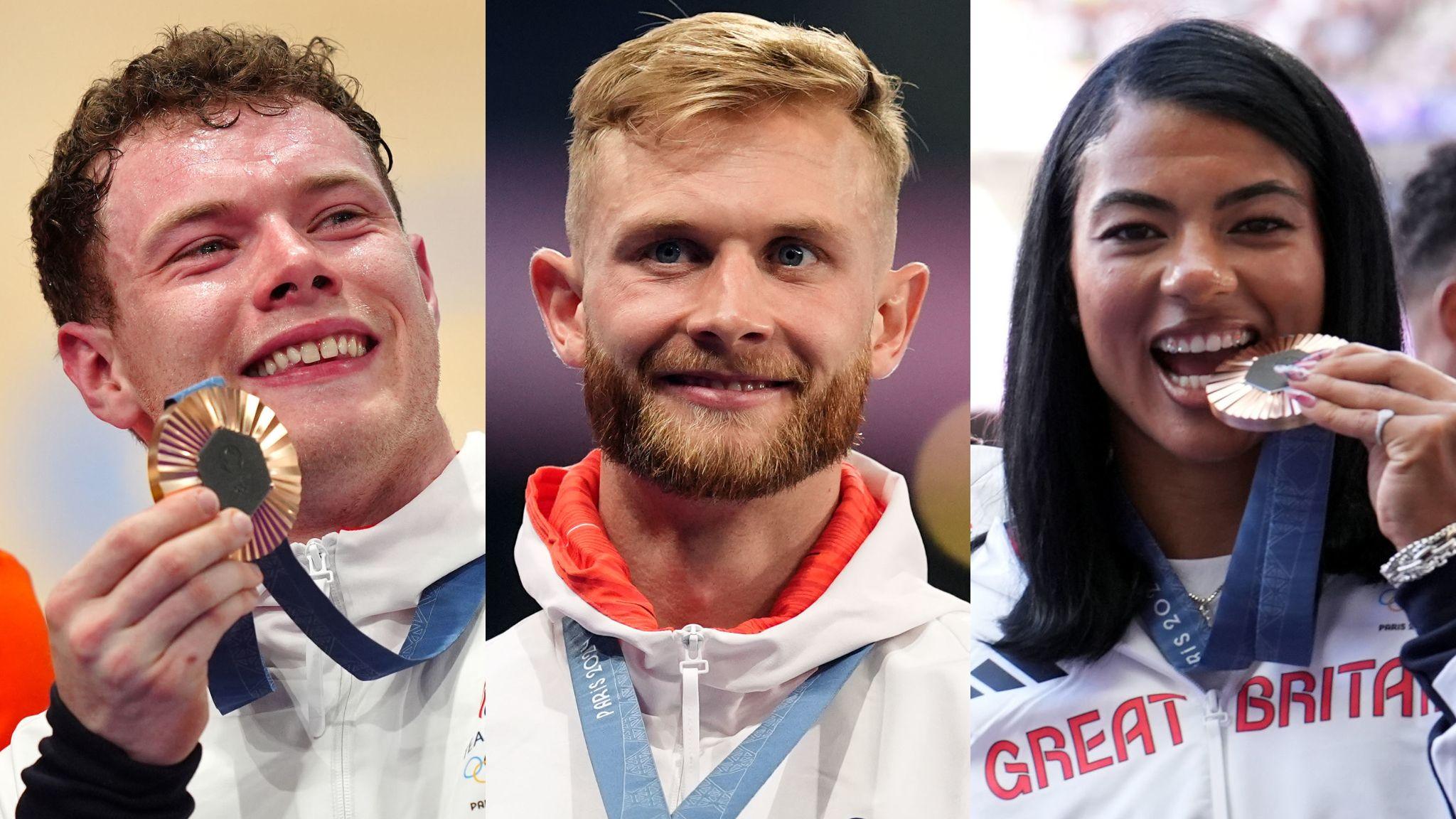Scots 'punch above weight' in Paris, but might LA look different?

Will Jack Carlin, Josh Kerr and Nicole Yeargin be chasing medals again in LA?
- Published
As the honour of being the Olympic Games' host city was handed from Paris to Los Angeles during Sunday's bombastic closing ceremony, 2028 still felt a long way off.
The sheen of almost three weeks of competition in the sweltering French capital is still glistening and many of the 34-strong Scottish contingent were in town as Snoop Dogg, Tom Cruise and the rest did their bit in the finale.
When they leave, nine Scots will have medals in their luggage. The overall tally of 13 is one shy of the record mark set in Toyko three years ago but still represents the second most successful ever Games in terms of the number won.
Granted, an individual gold is missing from that set, but nobody other than Chris Hoy or Andy Murray has claimed one of those in the past 24 years.
Outside that, there are significant achievements to celebrate.
Scots end Paris Olympics just short of record tally
- Published11 August 2024
Marchand & Macron grab attention, but Scott makes own mark
- Published2 August 2024
Kerr and Ingebrigtsen 'destroy each other' as Hocker rips up script
- Published6 August 2024
Swimmer Duncan Scott now has more Olympic medals than any other Scot - surpassing Hoy - after relay gold and individual silver took his collection to eight.
Cyclist Jack Carlin has stealthily climbed to third in that list after repeating his Tokyo team sprint silver and individual sprint bronze in the velodrome.
Showjumper Scott Brash won his second gold 12 years after his first. And both Beth Potter and Nicole Yeargin will leave with bronze medals from two separate events.
"We've been punching above our weight," Hoy told BBC Sport Scotland of a group that makes us more than 10% of Team GB. "There have been some amazing Scottish performances and we should be proud of that.
"We've always had the talent. But it's when you give that talent the resources, the facilities, the coaches, the chance to show how good they are, that you see amazing performances, like the ones we've had here.
"We've had some incredible athletes down the years in different sports and, if we keep investing in sport, we'll keep getting these results."
Could LA Games look very different?
But could these past four Games - London, Rio, Tokyo and Paris - prove to be the high watermark for Scottish success?
The governmental desire to buy glory by heavily funding elite sport might dwindle in the face of other pressures. And there are particular challenges among the cohort of Scottish athletes, too.
Josh Kerr has already rolled out his rhetoric about winning gold in Los Angeles. Potter is adamant she wants another crack at that too. And Yeargin spoke giddily about competing in the country of her birth.
Those three Paris medallists would all fancy themselves to have ribbon around their necks again in four years time, but wanting something and achieving it are very different things.
Take Katie Archibald. As recently as last month, the cyclist was all set to try to add to the gold and two silver she won in Tokyo. Then she tripped over a garden step and ruined not only her leg but her Olympic ambitions as well.
She will be 34 by the time LA comes around. Is that too old in the frantic world of track cycling?
Maybe not, but the ages of those who won medals this summer is not overly encouraging for the future.
Kerr is the youngest at 26, so being in good enough shape to complete his set of Olympic colours in four years time does not seem outlandish.
Scott is only a year older, but there are precious few 31-year-olds competing at the top of elite men's swimming. It's a young man's game.
Similarly, Potter will be 36 by the time of LA. Can a triathlete keep doing what they do to themselves for that long?
Neah Evans will be 38. Fellow cyclist Jack Carlin 31. Rowers Sholto Carnegie and Rowan McKellar will be 33 and 34 respectively. Yeargin will be 30.
Scott Brash is a little different given the different physical demands of equestrian, but does he have the desire to go again at the age of 42?
Those questions will be answered over the next four years. It might not feel that far away right now, but the cycle will begin again almost immediately.